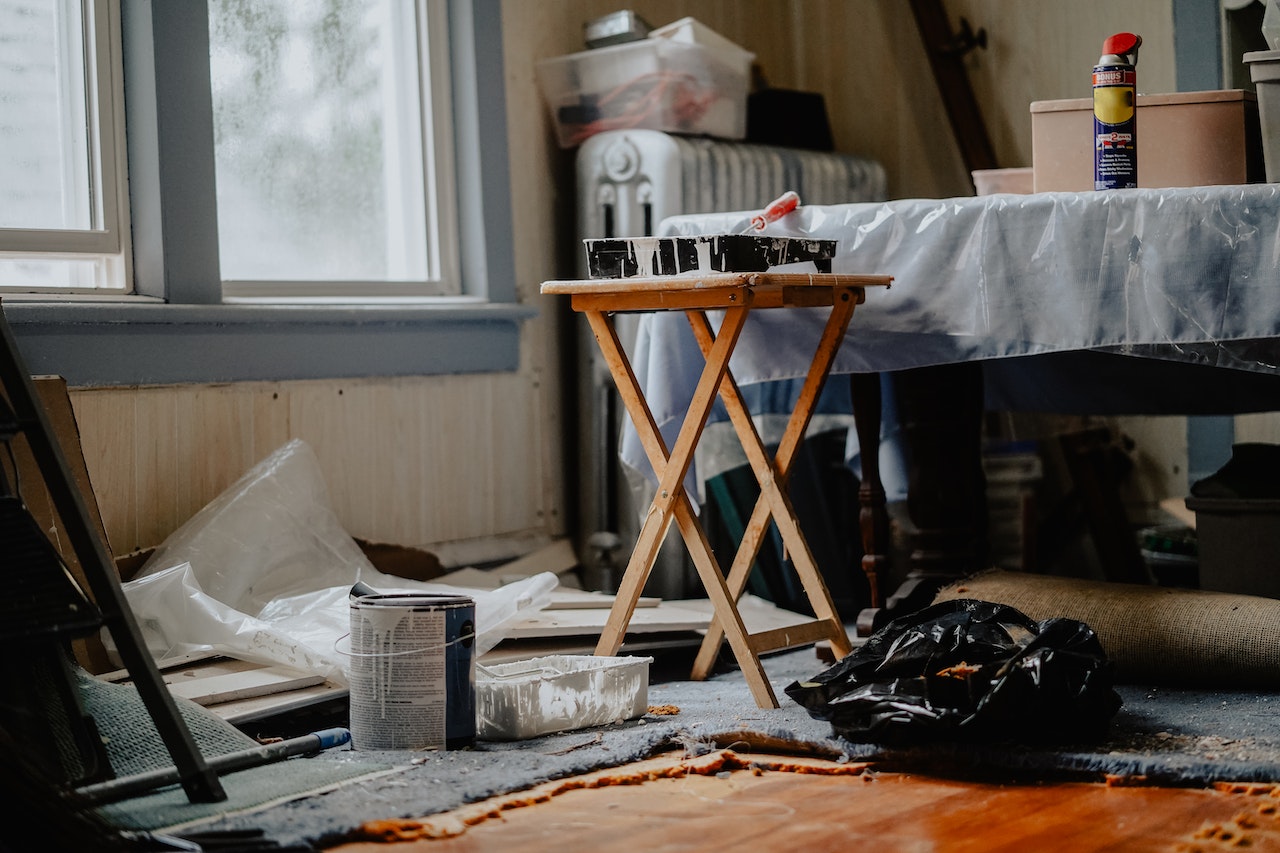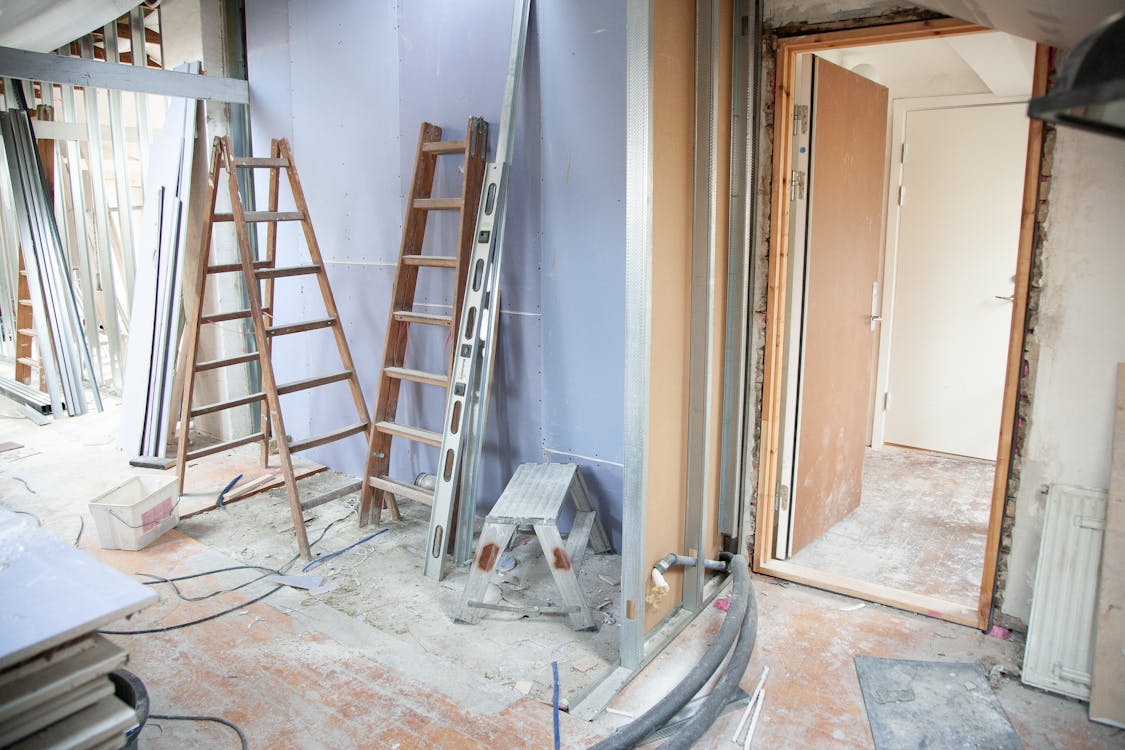
You’ve finally decided to renovate your home. Congratulations! This is a big step that will undoubtedly add value to your property. However, as you know, any construction project comes with a fair share of waste. The good news is that there are now more options than ever when it comes to disposing of renovation waste. In this blog post, we will explore some of the best ways to get rid of leftover construction materials. From recycling to donation, there are plenty of options available to help you clear out the clutter and make room for your new renovation.
The Different Types of Renovation Waste

There are a variety of renovation waste types, each with their own unique disposal requirements.
Building materials
This includes lumber, drywall, pipes, fixtures, and bricks. Construction crews typically take care of this type of waste.
Hazardous waste
This includes asbestos, lead paint chips, and mercury-containing light bulbs. These items must be properly disposed of at a hazardous waste facility.
Household items
This includes furniture, appliances, and carpeting. These items can be donated or recycled, but often end up in the landfill.
Yard waste
This includes landscaping debris such as leaves, branches, and grass clippings. Yard junk can be composted or mulched.
How to Recycle Renovation Waste?

When it comes to renovation junk, recycling is always the best option. There are a few different ways to recycle renovation waste, and the best method will depend on the type and amount of junk you have.
The first step is to sort your waste into different categories. Common categories include wood, metal, drywall, insulation, glass, and plastics. Once you have sorted your waste, you can start recycling it using one of the following methods:
- Curbside recycling: Many cities offer curbside recycling programs that accept a wide variety of materials. Check with your local city or county government to see what types of materials they accept.
- Construction and demolition debris landfills: These landfills are specifically designed to dispose of construction and demolition debris. Check with your local landfill to see if they accept renovation junk.
- Recycling centers: There are many private recycling centers that will accept most types of construction and demolition debris. Contact your local solid waste district or search online for a recycling center near you.
- Reuse: One of the best ways to recycle renovation waste is to simply reuse it in your next project. For example, if you have leftover wood from a previous project, consider using it for trim or shelving in your new space.
Best Way to Dispose of Renovation Waste

When it comes to disposing of renovation waste, there are a few different options available. You can either take it to the dump yourself or hire a professional company to do it for you.
If you’re planning on doing the job yourself, then you’ll need to make sure you have a large enough vehicle to transport the junk. You’ll also need to know where your local dump is and what their opening times are.
If you’re hiring a professional company, then they will usually take care of everything for you. They will come to your house, collect the waste, and then dispose of it properly. This is usually the easiest and most hassle-free option.
Hazardous Waste
Hazardous waste is any material that is potentially harmful to human health or the environment. This includes everything from asbestos and lead paint to chemicals and oil. It’s important to dispose of hazardous waste properly to avoid potentially serious consequences.
There are a few different ways to dispose of hazardous waste. The best way depends on the type of waste and the amount you have.
One option is to take it to a local hazardous waste facility. These facilities are specially equipped to handle and dispose of hazardous materials. They may charge a fee, but it’s worth it to know that the waste will be handled safely and correctly.
Another option is to hire a private company that specializes in hazardous waste disposal. These companies will pick up the junk and dispose of it for you. They may be more expensive than a local facility, but they can save you time and hassle.
Finally, you can try to dispose of the hazardous waste yourself. This is not recommended unless you are very experienced with dealing with dangerous materials. If you choose this option, be sure to follow all safety guidelines carefully to avoid accidents or injuries.
Recyclable Waste
There are many ways to dispose of renovation waste, but not all of them are equal. Some methods are more environmentally friendly than others, and some are simply more convenient.
One of the best ways to dispose of renovation junk is to recycle it. Many construction materials can be recycled, including metals, glass, plastics, and even some types of wood. Recycling your construction waste not only reduces landfill waste, but can also provide you with some much-needed extra cash.
Another great way to dispose of renovation junk is to donate it. If you have any gently used items that you no longer need, consider donating them to a local charity or thrift store. Not only will this help someone in need, but it will also keep your unwanted items out of the landfill.
Finally, if you simply can’t seem to get rid of your construction junk any other way, you can always hire a professional junk removal company to haul it away for you. This is usually the most expensive option, but sometimes it’s the only way to get rid of large amounts of waste quickly and efficiently.
Conclusion
There are a number of ways to dispose of renovation junk and it can be tricky to choose the best option for your needs. We hope that this article has helped you to understand the different disposal options available and made it easier for you to choose the right one for your project. Remember, if in doubt, always ask a professional!








